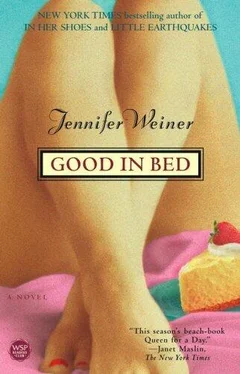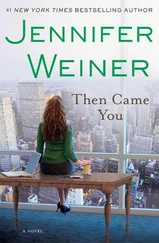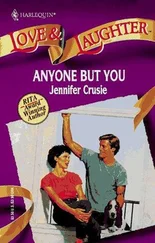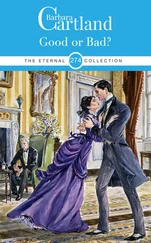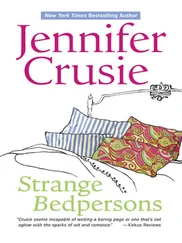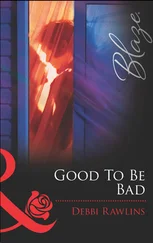“Don’t know,” I said. “Dr. K. brought it. Take a look.”
Sam ripped through the string and opened the box, and there, inside, was an éclair from the Pink Rose Pastry Shop, a wedge of chocolate bread pudding from Silk City, a brownie still in its Le Bus wrapping paper, and a pint of fresh raspberries.
“Unbelievable,” I murmured.
“Yum!” said Samantha. “How does he know what you like?”
“I told him,” I said, touched that he’d remember. “For Fat Class, we had to write down what our favorite foods were.” Sam cut me a sliver of éclair, but it tasted like dust and stones in my mouth. I swallowed to be polite, sipped some water, then told her that I was tired, that I wanted to sleep.
I stayed in the hospital another week, healing, while Joy got bigger and stronger.
Maxi showed up every morning for a week and sat beside me and read from People, In Style, and Entertainment Weekly magazines, embroidering each story from her own personal stash of anecdotes. My mother and sister stayed with me in the daytime, making conversation, trying not to linger too long at the pauses that came where I would normally be saying something smart-ass. Samantha came every night after work and regaled me with Philadelphia gossip, about the antiquated former stars Gabby had interviewed and the how Nifkin had taken to stopping, mid-walk, and planting himself in front of my apartment building and refusing to budge. Andy came with his wife and a box of Famous Fourth Street chocolate chip cookies and a card that everyone in the newsroom had signed. “Get Well Soon,” it read. I didn’t think that would be happening, but I didn’t tell him that.
“They’re worried about you,” Lucy whispered when my mother was in the hall, talking about something with the nurses.
I looked at her and shrugged.
“They want you to talk to a psychiatrist.”
I said nothing. Lucy looked very serious. “It’s Dr. Melburne,” she said. “I had her for a while. She’s horrible. You better cheer up and start talking more, or else she’s going to ask you about your childhood.”
“Cannie doesn’t have to talk if she doesn’t want to,” said my mother, pouring a cup of ginger ale that nobody would drink. She straightened my flowers, plumped my pillows for the fourteenth time, sat down, then got up again, looking for something else to do. “Cannie can just rest.”
Three days later, Joy took her first breaths without the ventilator.
Not out of the woods yet, the doctors warned me. Have to wait and see. She could be fine, or things could go wrong, but probably she’ll be okay.
And they let me hold her, finally, lifting up her four-pound-six-ounce body and cradling her close, running my fingertips over each of her hands, each fingernail impossibly small and perfect. She clutched at my finger fiercely with her own tiny ones. I could feel the bones, the push of her blood beneath her skin. Hang on, I thought to her. Hang in there, little one. The world is hard a lot of the time, but there’re good things here, too. And I love you. Your mother loves you, baby Joy.
I sat with her for hours until they made me go back to bed, and before I left I filled out her birth certificate, and my handwriting was clear and firm. Joy Leah Shapiro. The Leah was for Leonard, Bruce’s father’s middle name. Leah, the second sister, the one Jacob didn’t want to marry. Leah, the trick bride, the one her father sent down the aisle in disguise.
I bet Leah had a more interesting life anyhow, I whispered to my baby, holding her hand, with me in my wheelchair and her in her glass box that I forced myself not to see as a coffin. I bet Leah went on hiking trips with her girlfriends and had popcorn and Margaritas for dinner, if that’s what she wanted. I’ll bet she went swimming naked and slept under the stars. Rachel probably bought Celine Dion CDs and those Franklin Mint collectible plates. She was probably boring, even to herself. She never went on an adventure, never took a chance. But you and me, baby, we’re going to go on adventures. I will teach you how to swim, and how to sail, and how to build a fire… everything my mother taught me, and everything else I’ve learned. Just make it out of here, I thought, as hard as I could. Come home, Joy, and we’ll both be fine.
Two days later, I got part of my wish. They sent me home, but decided to keep Joy. “Just for another few weeks,” said the doctor, in what I’m sure he imagined was a comforting tone. “We want to make sure that her lungs are mature… and that she’s gained enough weight.”
I burst into bitter laughter at that one. “If she takes after her mother,” I announced, “that shouldn’t be a problem. She’ll gain weight like a champ.”
The doctor gave me what he no doubt believed was a comforting pat on the shoulder. “Don’t worry,” he said. “Things should be fine.”
I limped out of the hospital, blinking, in the warm May sunshine, and eased myself into my mother’s car, sitting quietly as we drove back home. I saw the leaves, the fresh green grass, the St. Peter’s schoolgirls in crisp plaid jumpers. I saw, but didn’t see. To me, the whole world looked gray. It was as if there was no room inside of me for anything except fury and fear.
My mother and Lucy unloaded my bags from the trunk and walked me to my building. Lucy carried my bags. My mother walked slowly beside me, and Tanya huffed behind us. My leg muscles felt wobbly and underused. My stitches ached, my ankle itched in its walking cast. It turned out that I’d only sprained my ankle when I’d fallen, but nobody had thought to look at my legs until days later, so the foot had stayed bent, and the tendons stayed torn, which meant a walking cast for six weeks: small potatoes, in relation to everything else I was dealing with.
I fumbled through my purse. My wallet, the half-empty pack of chewing gum, a Chap Stick and a book of matches from the Star Bar looked like relics from another life. I was groping for my keys when Lucy put her key into the first-floor door.
“I don’t live here,” I said.
“You do now,” said Lucy. She was beaming at me. My mother and Tanya were, too.
I limped across the threshold, my cast thumping on the hardwood floors, and stepped inside, blinking.
The apartment – a twin of mine up on the third floor, all dark wood and circa 1970s fixtures – had been transformed.
Sunlight streamed in from windows that hadn’t been there before, sparkling on the pristine, polished maple floors that had been neither pristine nor polished nor maple when I’d last seen the place.
I walked slowly into the kitchen, moving as if I were underwater. New cabinets stained the color of clover honey. In the living room were a new couch and love seat, overstuffed and comfortable, upholstered in buttery yellow denim – pretty, but sturdy, I remember telling Maxi, as I pointed out things I coveted in the latest issue of Martha Stewart Living one lazy afternoon. A beautiful woven rug in garnet and dark blue and gold covered the floor. There was a flat-screen TV and a brand new stereo in the corner, stacks of brand-new baby books on the shelves.
Lucy was practically dancing, beside herself with joy. “Can you believe it, Cannie? Isn’t it amazing?”
“I don’t know what to say,” I told her, moving down the hall. The bathroom was unrecognizable. The Carter administration-era pastel wallpaper, the ugly dark wood vanity, the cheap stainless steel fixtures, and the cracked toilet bowl – all gone. Everything was white tile, with gold and navy accents. The tub was a whirlpool bath, with two showerheads, in case, I guessed, I wanted to bathe with a partner. There were new glass-fronted cabinets, fresh lilies in a vase, a profusion of the thickest towels I ever felt stacked on a brand-new shelf. A tiny white tub for giving the baby a bath sat on one counter, along with an assortment of bath toys, little sponges cut into the shapes of animals, and a family of rubber duckies.
Читать дальше
